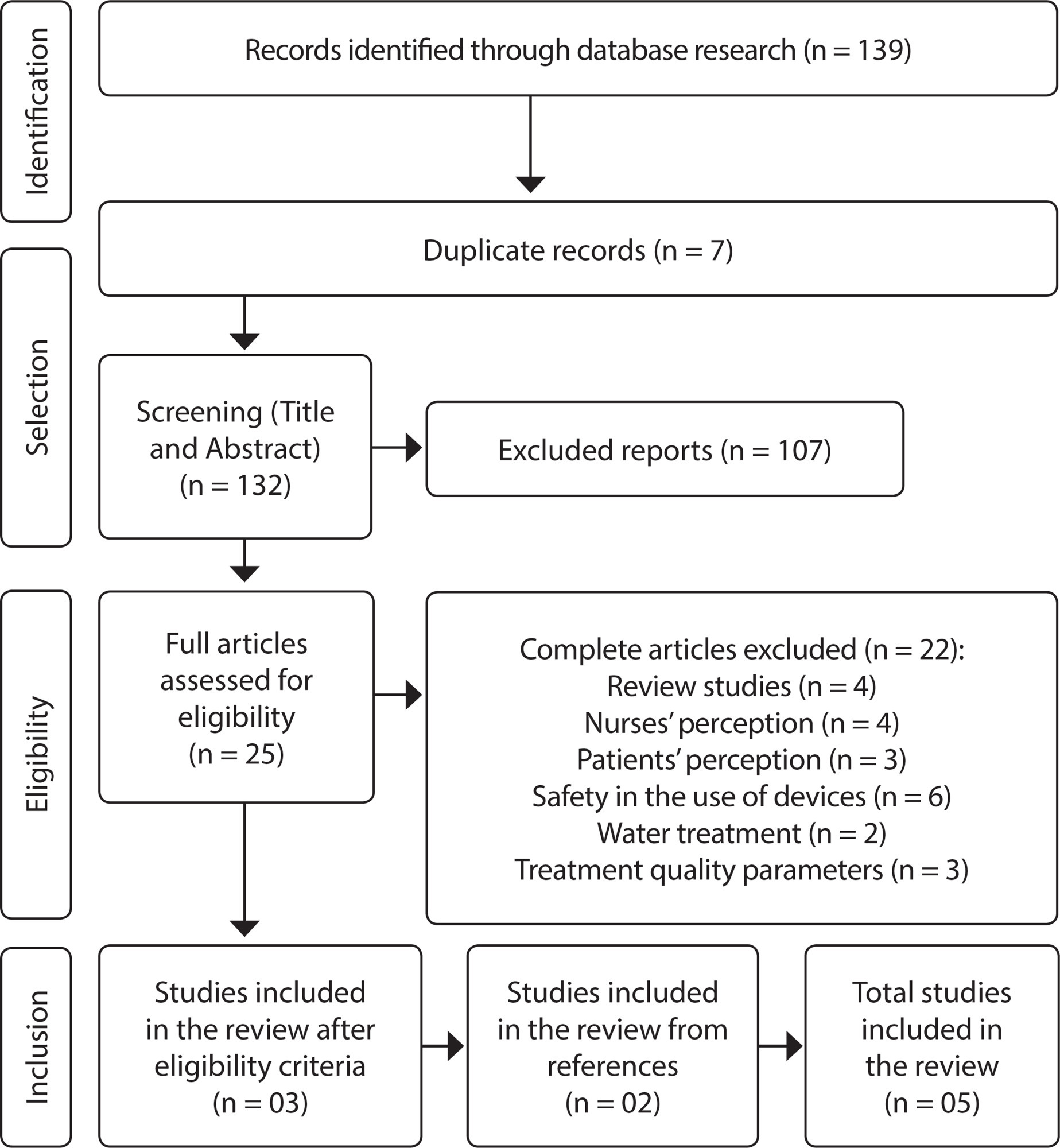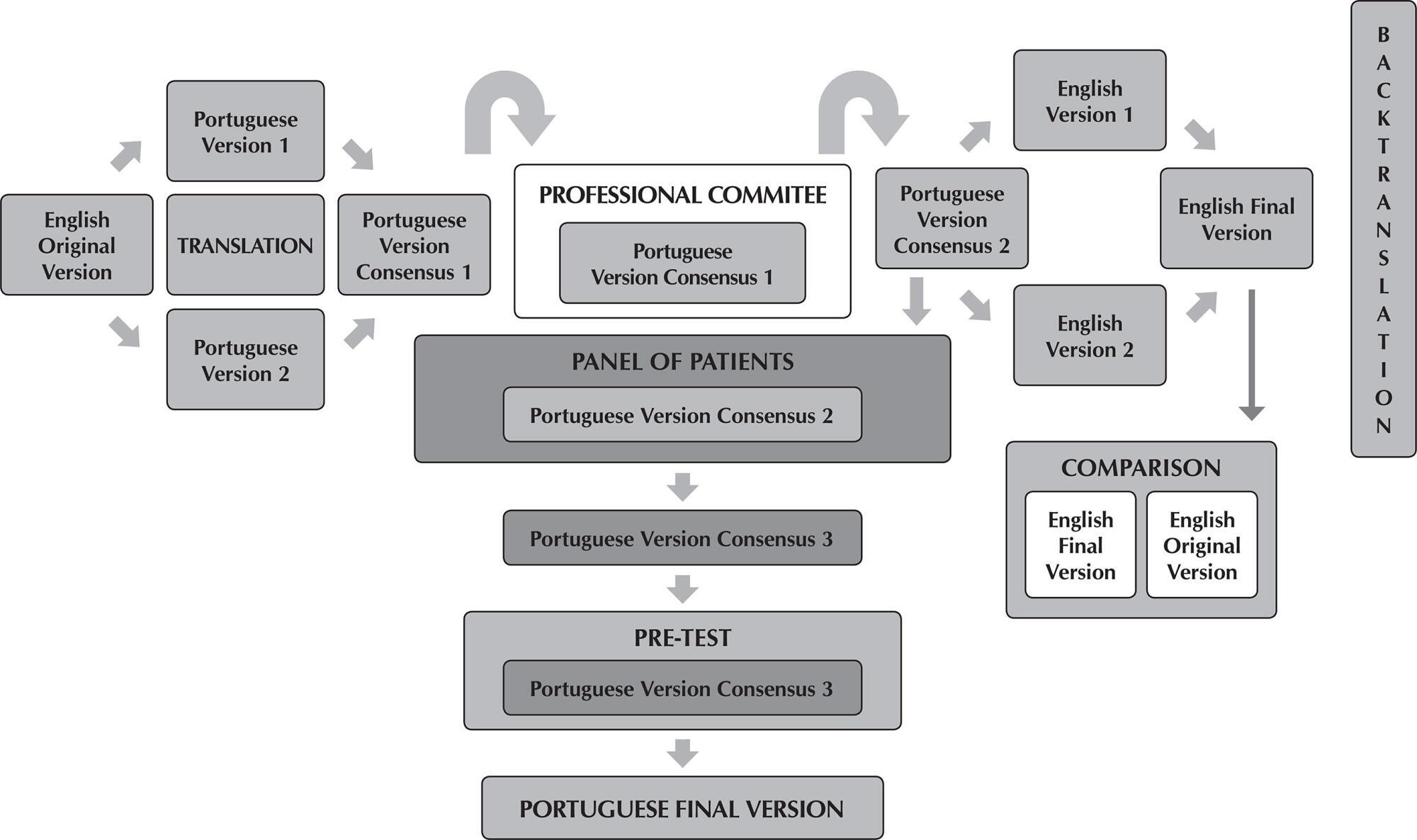-
ORIGINAL ARTICLE
Feelings, experiences and expectations of kidney transplant individuals and challenges for the nurse
Revista Brasileira de Enfermagem. 2021;74(1):e20200392
03-24-2021
Resumo
ORIGINAL ARTICLEFeelings, experiences and expectations of kidney transplant individuals and challenges for the nurse
Revista Brasileira de Enfermagem. 2021;74(1):e20200392
03-24-2021DOI 10.1590/0034-7167-2020-0392
Visualizações0ABSTRACT
Objectives:
to identify feelings, experiences, and expectations of kidney transplant patients, generated from the diagnosis of chronic renal disease until the post-transplant period, highlighting the challenges for nurses to incorporate individualized care to cope throughout the disease process.
Methods:
qualitative, descriptive research, carried with seven kidney transplant patients, in the city of Manaus, State of Amazonas. The data analysis followed the methodological referential of Bardin’s content analysis.
Results:
the diagnosis of the disease was experienced negatively, and hemodialysis was described as an imprisonment and health decline. The transplant meant an improvement in quality of life. The main difficulties were lack of a specialized hospital and low immunity.
Conclusions:
the nurses’ approach of chronic renal patient and with the renal transplantation favored the discovery of solutions facing the demands of the disease and allowed greater capacity to implement individualized care, surrounding a relationship of trust and respect.
Palavras-chave: Female and Male NursesKidney TransplantLife-Changing EventsNephrology NursingTransplantVer mais -
REVIEW
Factors related to hemodialysis safety culture: integrative literature review
Revista Brasileira de Enfermagem. 2020;73(6):e20190624
09-07-2020
Resumo
REVIEWFactors related to hemodialysis safety culture: integrative literature review
Revista Brasileira de Enfermagem. 2020;73(6):e20190624
09-07-2020DOI 10.1590/0034-7167-2019-0624
Visualizações0ABSTRACT
Objective:
To analyze the factors involved in nursing care that are related to the safety culture of chronic renal patients on hemodialysis.
Method:
Integrative literature review, carried out through the steps: problem identification, bibliographic research, data evaluation, data analysis, and report. We adopted the guiding question: “What scientific evidence is there about the factors related to the safety culture in hemodialysis clinics, according to the nursing team?” The search was carried out in the LILACS, Medline / PUBMED, Scopus, CINAHL, Cochrane, and Web of Science (WOS) databases.
Results:
The sample of this review was composed of five studies. The factors found were: 8 predisposing, 13 disabling, 11 precipitating, and 18 reinforcing.
Conclusion:
The analysis of literary productions allowed an understanding of the main factors linked to nursing practices that influence the safety culture of patients on hemodialysis.
Palavras-chave: Hemodialysis Units, HospitalNephrology NursingNursing CarePatient SafetyPrecipitating FactorsVer mais
-
ORIGINAL ARTICLE
Nursing care with surgical arteriovenous shunt in renal dialysis: a validation study
Revista Brasileira de Enfermagem. 2020;73(6):e20190012
08-10-2020
Resumo
ORIGINAL ARTICLENursing care with surgical arteriovenous shunt in renal dialysis: a validation study
Revista Brasileira de Enfermagem. 2020;73(6):e20190012
08-10-2020DOI 10.1590/0034-7167-2019-0012
Visualizações0ABSTRACT
Objectives:
to validate a care protocol for the monitoring and prevention of arteriovenous fistula complications.
Methods:
a validation methodological study with a quantitative approach, developed in a university hospital in the city of Rio de Janeiro.
Results:
scientific evidence was gathered from 20 researches. A care protocol was developed, composed of 15 items and divided into 3 sessions. The protocol was validated by a group of 11 experts, obtaining a content validity index of 0.95.
Conclusions:
the protocol proposes nursing care capable of preventing and monitoring arteriovenous fistula complications, punctured with a traditional technique, taking into account the actions implemented from patients’ entry into the machine until the end of therapy.
Palavras-chave: Arteriovenous Shunt, SurgicalNephrology NursingNurse's RoleNursing CareRenal DialysisVer mais -
RESEARCH
Direct cost of monitoring conventional hemodialysis conducted by nursing professionals
Revista Brasileira de Enfermagem. 2017;70(2):357-363
01-01-2017
Resumo
RESEARCHDirect cost of monitoring conventional hemodialysis conducted by nursing professionals
Revista Brasileira de Enfermagem. 2017;70(2):357-363
01-01-2017DOI 10.1590/0034-7167-2016-0447
Visualizações0ABSTRACT
Objective:
to analyze the mean direct cost of conventional hemodialysis monitored by nursing professionals in three public teaching and research hospitals in the state of São Paulo, Brazil.
Method:
this was a quantitative, explorative and descriptive investigation, based on a multiple case study approach. The mean direct cost was calculated by multiplying (clocked) time spent per procedure by the unit cost of direct labor. Values were calculated in Brazilian real (BRL).
Results:
Hospital C presented the highest mean direct cost (BRL 184.52), 5.23 times greater than the value for Hospital A (BRL 35.29) and 3.91 times greater than Hospital B (BRL 47.22).
Conclusion:
the costing method used in this study can be reproduced at other dialysis centers to inform strategies aimed at efficient allocation of necessary human resources to successfully monitor conventional hemodialysis.
Palavras-chave: BenchmarkingCosts and Cost AnalysisDirect Service CostsHospital Hemodialysis UnitsNephrology NursingVer mais -
RESEARCH
Cultural adaptation of The End-Stage Renal Disease Adherence Questionnaire for hemodialysis patients
Revista Brasileira de Enfermagem. 2017;70(6):1169-1175
01-01-2017
Resumo
RESEARCHCultural adaptation of The End-Stage Renal Disease Adherence Questionnaire for hemodialysis patients
Revista Brasileira de Enfermagem. 2017;70(6):1169-1175
01-01-2017DOI 10.1590/0034-7167-2016-0519
Visualizações0ABSTRACT
Objective:
To describe the stages in the cultural adaptation of "The End-Stage Renal Disease Adherence Questionnaire" for use in Brazil.
Method:
A descriptive, transversal study with a quantitative approach. The cultural adaptation followed the steps of translation, professional committee, back translation, panel of patients and pretest.
Results:
the translation stage created a version in Portuguese that was analyzed by specialists, who suggested alterations in the title, seven sentences in the questions and three sets of answers. In the panel of patients phase, two questions were altered. The back translation considered the original characteristics of the instrument were maintained, likewise there were no modifications in the pretest phase. The third version written in Portuguese was considered to be the final version of the questionnaire.
Conclusion:
this instrument should facilitate nursing care management in hemodialysis, enabling the monitoring of adherence among these patients and also contribute to improving the indicators of morbidity and mortality.
Palavras-chave: Adherence to MedicationChronic Renal InsufficiencyHemodialysisNephrology NursingPatient CooperationVer mais



